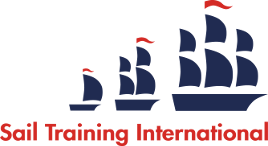Key Port Criteria
There are three key criteria used by all sail training vessel operators to determine good ports from bad: attitude, facilities and services.
Attitude
The attitude of a port to the arrival of a sail training vessel usually depends on whether or not it has a general policy of encouraging and supporting sail training. This might be reflected simply in the welcome given to an arriving sail training vessel and the offer of various facilities and services. It might also be that the port acts as permanent ‘home port’ for a particular sail training vessel, or even owns and operates one itself.
Having someone, or a small group of people, in the port familiar with the sail training activity helps both the vessel and the port – especially if these people are available to act as a liaison with the vessel’s captain and perhaps assist with customs and immigration formalities etc. People suitable for this task may be on the staff of the port or available through local yacht clubs.
A sail training friendly port recognises that sail training vessels are special, do valuable work and deserve help and support. If a port is willing to be helpful, but for a limited period only, this should be clearly explained and will be appreciated.
Facilities
The large sail training ships are usually self-sufficient in several basic areas. Normally they have their own on-board laundry, showers and lavatories, and generate their own power. They have engineering and sail making workshops. They will also normally have appointed a local agent to assist with bunkering and victualling etc.
Vessels owned by Navies will generally visit a port as part of an official programme and usually be assisted through their own Embassies and by representatives of the local Navy. But those owned by not-for-profit organisations often seek assistance with no-cost or low-cost access to tugs, pilots and berthing or anchorage, and a reduction or elimination of harbour fees. These ships will always seek to make advance arrangements with the port. Most are usually very willing to arrange tours of the ship for local people. Some will make their ships available for corporate hospitality events and even day-sailing subject to local regulations.
The smaller sail training vessels, mostly yachts, are also encouraged to make advance arrangements with a port; but generally operate to a more flexible sailing programme than the big ships. No-cost or low-cost berthing will be important to them, as will access to laundry facilities, showers and lavatories. Here again, though, a designed liaison person from the port to help contact with local services, if required, can make a big contribution to the vessel’s visit.
Services
While the big ships are fairly self-sufficient, they too may need specialist services for repairs and victualling, and access to no-cost or low-cost fuel is always a major incentive to visit a port. For all visiting sail training vesssels, access to information and assistance with local services (medical, entertainment, cultural and tourist attractions, and also repair shops and sail makers) makes a valuable contribution to a port visit.
Recommendations:
- Develop a positive policy towards encouraging sail training vessels to visit, and take active steps to support sail training in your area.
- Identify a few people locally, port staff or from local yacht clubs, who can act as a liaison with visiting sail training vessels.
- Be able and willing to advise visiting sail training vessels on relevant local regulations, local repair and other services, and interesting things for the crew to do locally.
- Assist where you can with the provision of no-cost or low-cost berthing or anchorage, and access to electricity, fuel and water.
- Make sure the visiting sail training vessels know what you expect of them!

